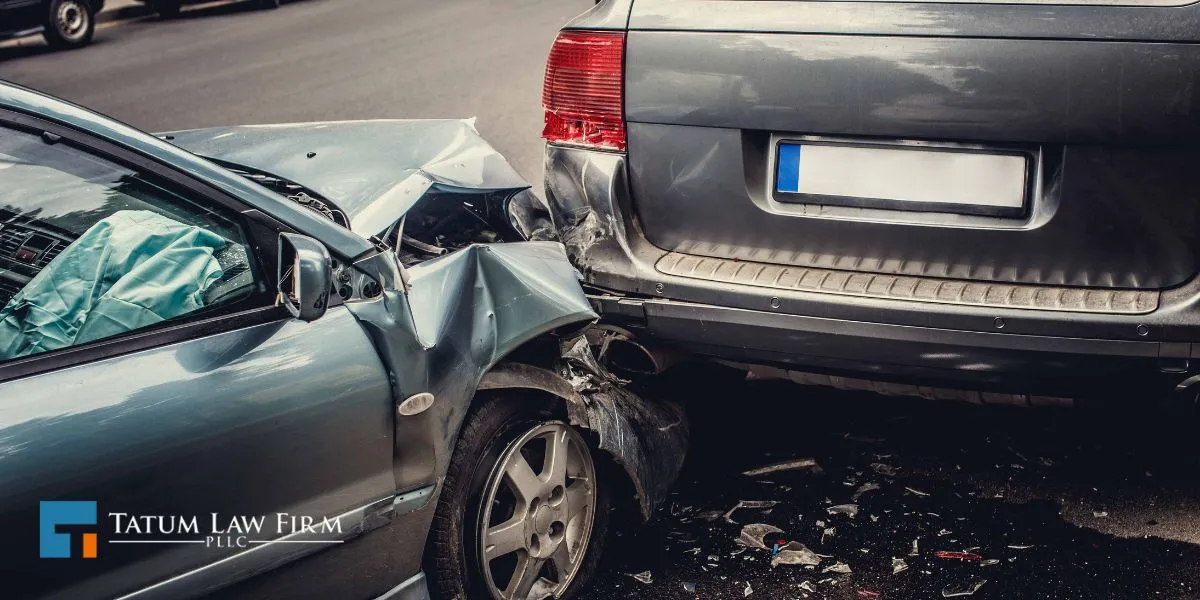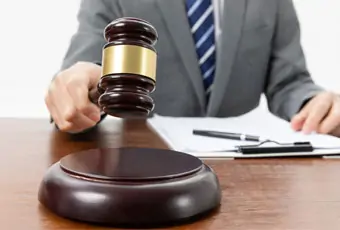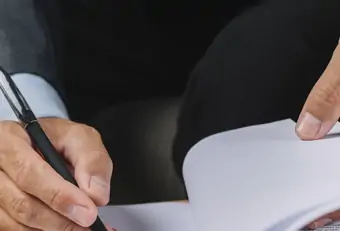South Carolina Car Accident Lawyer

South Carolina Car Accident Attorney
For many people, driving is a daily necessity. Sometimes, driving is such a part of our daily routine that we forget about the risks involved. Experiencing an automobile accident can serve as a clear reminder of how dangerous driving can be, particularly if it wasn’t your fault. If you have been involved in a car accident, our South Carolina car accident lawyer can be there to support you through the legal process and ensure you receive the compensation you deserve.
When you’re injured in a car accident, your medical bills, lost wages, pain, and suffering can become a significant burden. Such costs should be covered by the at-fault person or, more precisely, by the insurance company of the at-fault person. Unfortunately, insurance companies often resist paying out the full amount owed to maximize their profits. You need an experienced South Carolina personal injury lawyer by your side to help navigate these complexities.
Types of Car Accidents in South Carolina
To successfully navigate the legal system and guarantee that victims obtain the compensation they are entitled to, it is important to hire an experienced attorney who understands the nuances of these various kinds of accidents. Some common types of car accidents include:
- Rear-End Collisions: These incidents usually happen when one car collides with the back of another, and they are frequently brought on by inattentive driving or abrupt stops.
- Side-impact (T-bone) collisions: These collisions, which usually happen at intersections, happen when a driver runs a red light or fails to yield, hitting the side of another car.
- Head-on Collisions: Among the most serious accidents, these happen when two cars going in different directions crash. This is frequently the result of driving the wrong way or losing control of the vehicle.
- Multi-Vehicle Pileups: These intricate collisions typically occur on busy or highway routes and include several automobiles, which makes determining who is at fault more difficult.
- Truck Accidents: Due to the size and weight of the vehicles, accidents involving commercial trucks can be very deadly. The trucking firm may be held liable in these cases.
- Motorcycle Accidents: Since motorcycles are smaller and less protected than cars, riders are more likely to suffer serious injuries in incidents.
- Accidents Involving Pedestrians: These incidents, which frequently happen in crosswalks in metropolitan settings, show how vulnerable pedestrians are.
- Bicycle Accidents: Cyclists are extremely vulnerable to collisions with motor vehicles, which frequently result in catastrophic injuries.
How a South Carolina Car Accident Lawyer Can Help
Navigating the aftermath of a car accident can be overwhelming. A skilled car accident attorney can make a significant difference in the outcome of your case. At Tatum Law Firm, PLLC, our services include:
- Conducting a thorough investigation to identify liable parties.
- Gathering and preserving evidence.
- Negotiating with insurance companies on your behalf.
- Representing you in court if a fair settlement cannot be reached.
Determining Liability in South Carolina Car Accidents
Liability in car accidents is not always straightforward. Various parties could be held responsible, and determining fault is a critical step in your case. There are various factors that contribute to fault in South Carolina, and the parties to blame often include:
- Other Drivers: When there is a collision, a particular driver’s carelessness or recklessness is often to blame.
- Uninvolved Drivers: Occasionally, a driver who was not directly involved in an accident causes it. The accident might have been caused by their activities.
- Employers: In the event that a commercial vehicle is involved, the driver’s employer may be held accountable, particularly if their rules created an environment that was unsafe for driving.
- Manufacturers and Installers: These organizations bear responsibility for accidents caused by defective parts or faulty installation.
- Government Entities: When accidents are caused by defective traffic signals or poor road conditions, the negligent government entity may be held accountable.
How Is Negligence Proven in South Carolina Car Accidents?
To receive compensation, it is necessary to prove motor vehicle negligence on the part of the defendant. This involves demonstrating three key elements. This evidence can be established with the aid of hard proof such as police records, expert analysis, and eyewitness testimony.
- Duty of Care: It was the defendant’s duty to act in a way that would not cause injury to others. This entails safe driving practices and adherence to traffic laws for drivers.
- Breach of Duty: Whether by action or omission, the defendant disregarded their duty of care. Examples include not maintaining a vehicle or driving carelessly.
- Causation: The accident and the injuries that followed were directly brought on by the duty violation.
Recoverable Damages in South Carolina Car Accidents
Car accident victims may be entitled to a range of damages, which are separated into two categories: economic and non-economic. Economic damages are quantifiable costs like hospital bills, missed income, and auto repairs. Intangible costs like pain and suffering, psychological trauma, and loss of enjoyment of life are covered by non-economic damages. Punitive damages may also be granted in some circumstances to penalize the defendant for horrific actions.
Contributory Negligence in South Carolina
South Carolina has a modified comparative negligence rule. This means that even if you are partially responsible, your claim will not be barred from receiving compensation if you are less than 51 percent at fault for your own injuries. You will, however, have your damages reduced by the percentage of fault allocated to you.
Statute of Limitations in South Carolina
The statute of limitations for filing a car accident claim in South Carolina is generally three years from the date of the accident. It is important to act quickly to preserve evidence and build a strong case.
Understanding Insurance Claims After a Car Accident
Handling the insurance claim procedure after an automobile accident can be difficult. To make sure you are paid what you’re entitled to, it is critical to understand the procedures involved fully. Start by notifying your insurance provider of the collision as soon as you can, giving them all the information they need, including the accident’s date, time, location, and circumstances.
A copy of the police report, witness statements, and scene photos are some of the other pieces of evidence you need to gather and turn in.
Your carrier will issue a claim adjuster to handle your case. Their job will be to investigate the claim by inspecting your car, reading your medical records, and talking to the witnesses. You need to have a clear understanding of what your policy entails. For example, know whether it is a liability-only, collision-only type, or both forms of coverage and how this coverage will impact your case.
If the at-fault driver is uninsured or underinsured, you may need to file a claim under your own policy’s uninsured/underinsured motorist coverage. In South Carolina, vehicle owners are required by law to maintain a minimum amount of liability insurance. Unfortunately, not all drivers comply with this law. Most private passenger auto insurance policies in South Carolina include uninsured/underinsured motorist (UM/UIM) coverage.
This type of coverage can cover many of your medical bills, lost income, and other expenses resulting from an accident if you’re in an accident caused by an uninsured or underinsured driver. To file a UM/UIM claim with your insurance company, you will be required to show evidence that the at-fault driver lacked insurance.
You will also need to provide your insurance company with documentation to support your claim for damages — which means that you’ll be constructing your own insurance company claim. While this process may be relatively straightforward, many insurance companies will work hard to deny paying the full amount you are legally entitled to and will resist your efforts to document your losses.
An experienced personal injury attorney can help you negotiate with your insurer and, if needed, take legal action to help you recover full compensation after a crash.
The Role of Expert Witnesses in Car Accident Cases
Expert witnesses are frequently asked to provide an expert description and explanation in vehicle accident cases by testifying about their expertise and how it relates to the particular situation. That is, experts provide testimony regarding the general knowledge from their respective fields (i.e., whether an injury is permanent or whether a car accident occurred with or without negligence).
This knowledge can be used to prove liability and damages in car accident cases. The expert witnesses are typically called when the disputed fact in a case requires proof from a specialized field of knowledge, such as accident reconstruction experts who assess the scene of the accident, the damage to the vehicle, and other relevant information to determine what caused the accident and who was at fault for it.
Medical experts can testify about the nature and extent of your injuries, the proper course of treatment, and the long-term effects on your health and life expectancy. Economics experts can testify about your loss of wages and prospective earnings, along with other economic damages you suffered. The testimony of expert witnesses can be critical in proving your case to insurance companies or in persuading the court of the validity of your claims.
An experienced attorney who has access to a network of expert witnesses is in a better position to build a case designed to maximize your compensation.
The Importance of Medical Documentation in Car Accident Claims
Medical records are the primary source of proof for the injuries received and the related expenses, making them the foundation of every personal injury lawsuit. After an accident, it is crucial to seek a medical examination as soon as possible, even if you feel perfectly fine, as some injuries may not manifest immediately. Local hospital emergency rooms are equipped to handle such assessments.
Unfortunately, many individuals forgo immediate medical attention, hoping they will recover on their own or that the pain will subside. By obtaining an immediate medical examination, you establish a clear link between the accident and your injuries.
Medical records provide a comprehensive record of diagnoses, treatments, medical bills, and prognoses. It is crucial that you obtain copies of your medical records from your initial visit through your ongoing treatment and adhere to all prescribed medical advice.
Furthermore, medical records can refute any claims by insurance companies that your injuries were pre-existing or less severe than stated. For example, if you are filing a claim for a back injury but had previously sought treatment for chronic back pain a few years before the accident, the insurance company might argue that your current back pain is due to this pre-existing condition rather than the accident.
To effectively counter these arguments, it is crucial to maintain a personal injury journal that details your symptoms, pain levels, physical activities, and daily functioning. This journal, in conjunction with your medical records, can significantly strengthen your case. Your attorney will help organize and present this medical evidence to the jury, ensuring that the extent and impact of your back injuries are clearly demonstrated.
The Role of Police Reports in Car Accident Cases
Police reports are another type of evidence that is essential for winning a potential car accident case. Police reports are the official version of the accident that corroborate your version of the event. Aside from general information about the crash and parties involved, the police report might also include valuable information that shapes the narrative, including weather conditions, road hazards, and any citations issued to the drivers involved.
What to Expect During the Car Accident Lawsuit Process
Navigating a car accident lawsuit can be a lengthy and complex journey. Understanding what to expect can help you prepare for the time involved and maintain a sense of calm and confidence. The process begins with an initial consultation with an attorney to discuss your claim and determine whether to pursue legal action.
If you decide to proceed, your attorney will draft and submit a document that describes the accident, your injuries, and the payment you’re hoping to receive. This complaint is then served on the defendant, who must respond within a specified timeframe.
The next phase is discovery, where information is shared by both parties. This phase includes depositions, interrogatories, document requests, and expert testimony, allowing your attorney to gather the necessary evidence to support your claim.
Most car accident cases are resolved before trial through pretrial settlement negotiations. Your attorney will bargain with the insurance company to reach a settlement that meets your satisfaction. The matter will proceed to trial if a fair resolution cannot be reached. Before rendering a decision, the jury or judge will hear arguments and evidence from all sides of the case.
Choosing the Right Car Accident Lawyer in South Carolina
Selecting the right attorney is crucial for your case. You must research, ask questions, and express your needs when seeking a lawyer who is a good fit for you. Look for a lawyer who is:
- Knowledgeable: Understands the intricacies of personal injury law.
- Experienced: Has a track record of handling similar cases successfully.
- Meticulous: Pays attention to the nuances that can make or break a case.
- Trustworthy: Someone you feel confident will advocate for your interests.
FAQs
Q: What Is the Average Settlement for a Car Accident in South Carolina?
A: The compensation someone receives for a car accident in South Carolina varies greatly depending on the particulars of the case. The ultimate settlement amount is determined by a number of factors, including the extent of the injuries, medical costs, lost income, property damage, and pain and suffering. Since every instance is different, results can vary greatly.
Q: How Long After an Accident Can You Sue in South Carolina?
A: There is a three-year statute of limitations in South Carolina for filing a personal injury claim following an accident. You also have three years from the time of the accident to sue for property damage. Failing to file either claim within this time period can result in losing the right to seek compensation.
Q: What Are the Compensation Laws for Car Accidents in South Carolina?
A: South Carolina follows a fault-based system for car accidents. The at-fault driver is liable for damages, which can include medical expenses, lost wages, property damage, and pain and suffering. Comparative negligence rules may reduce compensation if the injured party is partially at fault for the accident. It is important to document all damages thoroughly to support your claim.
Q: Is South Carolina a No-Fault Accident State?
A: No, South Carolina is not a no-fault accident state. South Carolina operates under a fault-based system which means the at-fault driver is responsible for compensating the injured party. Victims can seek compensation through the at-fault driver’s insurance, their own insurance, or by filing a personal injury lawsuit with an attorney of their choice.
Contact a South Carolina Car Accident Lawyer
If you have been involved in a car accident in South Carolina, you should not have to fight through the aftermath on your own. Get the help of a South Carolina car accident attorney to navigate the legal process and fight to receive proper compensation. Schedule a consultation with one of our car accident lawyers today to protect your rights.






